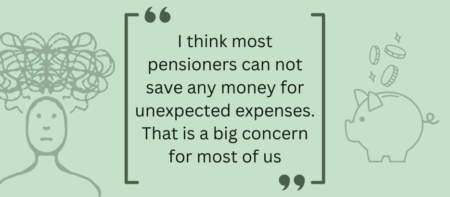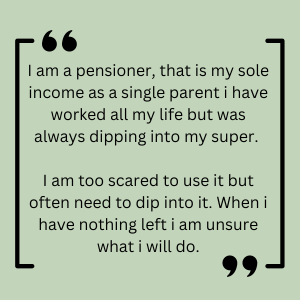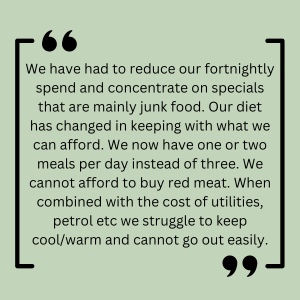Results from our recent survey confirms what we already know: people are struggling and want the Government to do more to help.
LAST week we asked CPSA News readers to fill out an anonymous survey on cost of living. We asked questions about your recent experiences in keeping up with a range of expenses including groceries, utilities such as power and water, council rates and healthcare.
You’ve probably heard the phrase ‘cost of living crisis’ in the news. The crisis is real, but it’s caused by a lot more than just inflation.
There isn’t enough affordable housing available due to limited housing stock. Councils are struggling with operating costs, leading to higher rates and calls for more
amalgamations. Supermarkets are making massive profits whilst many people can’t afford groceries. The Australian Government has increased GP rebates for practices that bulk bill, but those seem to be fewer in number every week after years of underinvestment in Medicare. Energy bills are through the roof, even with rebates.
Respondents also pointed to the cost of aged care and the impact of drought on farming as major concerns. Suffice to say, there is a lot more to this problem than the Reserve Bank is responsible for.
Financial pressure is mounting
60% of respondents said they are more stressed about their finances than usual, and another 30% said they are stressed but said this is business as usual. That means only 10% of respondents are not yet feeling the pinch.
This survey only captures feedback from a small group, but it reflects the reality for many of us. It is increasingly difficult to keep up with the cost of daily life. This has a major impact on health and wellbeing, particularly for people with limited income.
Many people are worried, particularly if they have limited or no superannuation to draw on.
However, it’s not just pensioners and others on a low income who are having a hard time. The middle class as Australia has known it is shrinking and respondents who have previously had no issue with their finances said that they are concerned for the future.
Groceries
90% of respondents have found it harder to pay for groceries and a third said they are struggling significantly.
Some responses outlined specific ways that their household is cutting back, including cutting out meat and shopping around for deals. Many are finding price gouging and supermarket tricks such as ‘shrinkflation’ to be hard to swallow.
Rebates, concessions and support
We also asked about support services and whether respondents feel that it is straightforward to find information.
Around 65% said that it’s difficult to figure out what is available and how to access it. Several respondents said that it’s important to check that you are receiving the rebates and concessions you’re eligible for – including checking your bills to make sure that they’ve actually been applied.
Some respondents said that it’s worrying that you need to know where to look and what to ask for. Others expressed that they are frustrated with needing to use a computer or smart device.
What now?
Well, the mid-year Budget update is out and it suggests that the federal coffers are in better shape than expected. That said, the extra cash is going into the bank – not towards cost of living relief measures.
The forecast is that inflation will continue to drop, which is bad news for the March pension indexation but good news overall.
CPSA will be preparing a submission to the Senate inquiry into supermarket prices and looks forward to the opportunity to speak to the struggles that people on low-incomes are facing when it comes to essential grocery items.
More to say?
Whilst numbers are useful, the most important outcome of this survey is the 150+ comments that told us what respondents are worried about, how they feel and what they think needs to be done about it.
If you would be willing to help us with future research, we would love to hear from you. CPSA is invited to give feedback to governments on a range of issues, but no one wants to hear what staff have to say – they want to hear from the people we represent.
This also helps us work out what issues are important for CPSA to campaign on. We often make representation to governments based on emails or calls we receive, as well as articles for CPSA News and THE VOICE of Pensioners & Superannuants.
If you would be interested in helping with this, please get in touch. You can email us at engagement@cpsa.org.au or call us on 1800 451 488. If you would like to complete the survey, it’s still open and you can find it by clicking here.
A big thank you to everyone who completed the survey so far. Your experiences and views matter and we appreciate you taking the time to share them.


